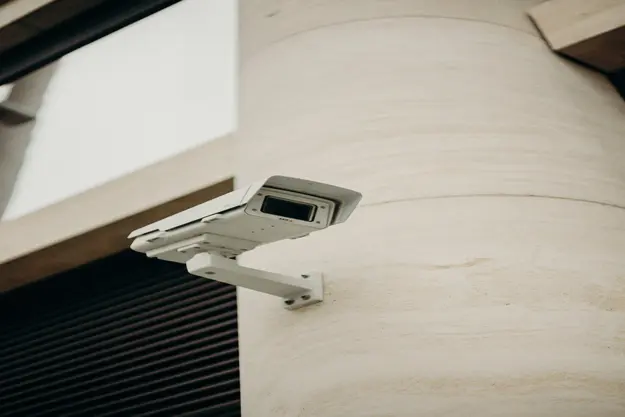IT Solutions Company in Dubai, UAE |Affordable IT Solution Provider
The Guide to CCTV Surveillance for Business Owners
In the fast-paced world of commerce, gaining every possible advantage is crucial. Beyond the allure of captivating storefronts and enticing displays, the silent guardian of CCTV surveillance plays a pivotal role. More than just deterring shoplifters, effective CCTV serves as a comprehensive shield, safeguarding assets, employees, and reputation. Let’s delve into the realm of business surveillance, exploring its significance, diverse options, and the legal landscape associated with CCTV.

Why CCTV is Your Business's Best Ally:
Safety and Security: CCTV acts as a vigilant eye, deterring criminal activity and providing critical evidence in case of incidents. Real-time monitoring enables swift responses to suspicious behavior, ensuring the safety of employees and customers.
Loss Prevention: From pilferage to inventory shrinkage, CCTV acts as a silent auditor, monitoring activities around your premises. This not only discourages internal and external theft but also helps identify areas for operational improvement.
Employee Monitoring: CCTV is a valuable tool for ensuring employee compliance with safety regulations and company policies. This can enhance productivity, foster a responsible work environment, and mitigate liability risks.
Remote Access and Peace of Mind: Modern CCTV systems allow remote monitoring, offering peace of mind whether you’re across town or across the globe. Access live feeds, review footage, and receive alerts, ensuring your business is always within your watchful gaze.
From Analog to AI: Exploring CCTV Systems:
Traditional Analog Systems: These reliable workhorses offer basic video recording and monitoring, often at a budget-friendly price. While lacking the advanced features of newer systems, they remain a viable option for smaller businesses.
Digital Video Recorders (DVRs): DVRs record footage onto hard drives, offering higher resolution and flexibility compared to analog. They allow for easier footage retrieval and playback, making them a popular choice for many businesses.
Network IP Cameras: These internet-connected cameras offer live streaming and remote access, empowering you to monitor your business from anywhere with an internet connection. Advanced features like facial recognition and motion detection further enhance security.
Cloud-Based Systems: Storing footage in the cloud removes on-site storage worries and offers seamless accessibility from any device. These systems often come with advanced analytics and AI-powered features, making them the cutting edge of CCTV technology.
Legal Considerations: Navigating the CCTV Landscape:
While CCTV offers undeniable benefits, its use comes with legal responsibilities. Ensure you understand and comply with local data privacy laws regarding recording and storing footage. Clearly indicate the presence of CCTV with signage, and only use footage for legitimate security purposes. Seeking professional guidance can help navigate the legal landscape and ensure your CCTV system operates within the bounds of the law.
CCTV is not a magic bullet. Its effectiveness hinges on choosing the right system for your needs, implementing it responsibly, and integrating it with other security measures. With careful planning and execution, CCTV can transform from a watchful eye into a powerful tool, safeguarding your business and empowering you to focus on what truly matters: making your venture thrive.
So, embrace the Argus within, and let CCTV be your silent partner in building a safer, more prosperous business.
.
